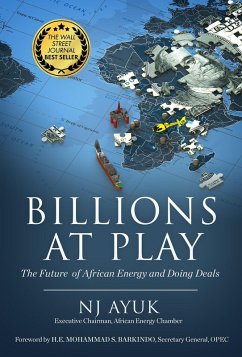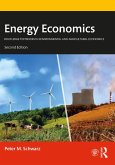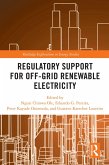Wall Street Journal Best Selling Book
"I agree with the points made-and with Ayuk's case for the critical role that OPEC will play in helping African oil products achieve a much-deserved voice in the petroleum industry."
-OPEC Secretary-General, H.E. Mohammad Sanusi Barkindo
Two decades of negotiating African oil and gas deals have given NJ Ayuk a grasp of the continent's energy landscape that few can match. The American-educated, African energy lawyer serves up generous doses of that insight in his second book, Billions at Play: The Future of Africa Energy and Doing Deals.
Serving as a road map for the continent to do a better job of using its vast energy resources to improve its peoples' lives, Ayuk addresses how African countries can use their energy industries as springboards for diversifying and growing their overall economies.
In addition, Ayuk shows how African governments and local companies can negotiate better deals with international energy companies and how the continent's countries can use marginal oil and gas fields to develop domestic energy industries that, once strong, will compete globally.
Questions posed and answered:
The book's underlying theme is that too often, natural resources create wealth for foreign investors and a select group of African elites while everyday people (and in turn, African economies) fail to benefit.
While it is easy to see that there is a lack of local participation in African projects and an ongoing challenge in securing necessary investment, we also need to understand our role in this. We have to understand the importance of creating enabling environments with attractive fiscal terms for local and foreign investors, the role of stronger local content policies in ensuring more local participation in the sector, and the weight government and political uncertainty carries in moving projects forward.
"It's up to Africans to fix Africa," writes Ayuk. This statement can be considered a living theme throughout the book as he encourages that local companies and governments have to enter into collaborative agreements rather than passive engagements with IOCs and majors. "[We need] investors who show that they want to fully participate with us, by coming in and building long-term sustainable businesses that last and make a profit, create jobs and further development."
If you're ready to dive headfirst into accessing a frank analysis and examination of the African energy landscape and how Africans can begin to fix Africa, jump into the pages of Billions at Play.
"I agree with the points made-and with Ayuk's case for the critical role that OPEC will play in helping African oil products achieve a much-deserved voice in the petroleum industry."
-OPEC Secretary-General, H.E. Mohammad Sanusi Barkindo
Two decades of negotiating African oil and gas deals have given NJ Ayuk a grasp of the continent's energy landscape that few can match. The American-educated, African energy lawyer serves up generous doses of that insight in his second book, Billions at Play: The Future of Africa Energy and Doing Deals.
Serving as a road map for the continent to do a better job of using its vast energy resources to improve its peoples' lives, Ayuk addresses how African countries can use their energy industries as springboards for diversifying and growing their overall economies.
In addition, Ayuk shows how African governments and local companies can negotiate better deals with international energy companies and how the continent's countries can use marginal oil and gas fields to develop domestic energy industries that, once strong, will compete globally.
Questions posed and answered:
- Why Africa's fledgling natural gas resources can allow the continent to emerge as a key global player in the industry
- What changes African countries can make in order to become attractive investment destinations
- The role that access to reliable, sustainable, and affordable power can play in the acceleration of economic growth
- Why and how American energy companies should stop curtailing their investments in Africa
- And why the continent's energy industry needs more women
The book's underlying theme is that too often, natural resources create wealth for foreign investors and a select group of African elites while everyday people (and in turn, African economies) fail to benefit.
While it is easy to see that there is a lack of local participation in African projects and an ongoing challenge in securing necessary investment, we also need to understand our role in this. We have to understand the importance of creating enabling environments with attractive fiscal terms for local and foreign investors, the role of stronger local content policies in ensuring more local participation in the sector, and the weight government and political uncertainty carries in moving projects forward.
"It's up to Africans to fix Africa," writes Ayuk. This statement can be considered a living theme throughout the book as he encourages that local companies and governments have to enter into collaborative agreements rather than passive engagements with IOCs and majors. "[We need] investors who show that they want to fully participate with us, by coming in and building long-term sustainable businesses that last and make a profit, create jobs and further development."
If you're ready to dive headfirst into accessing a frank analysis and examination of the African energy landscape and how Africans can begin to fix Africa, jump into the pages of Billions at Play.









